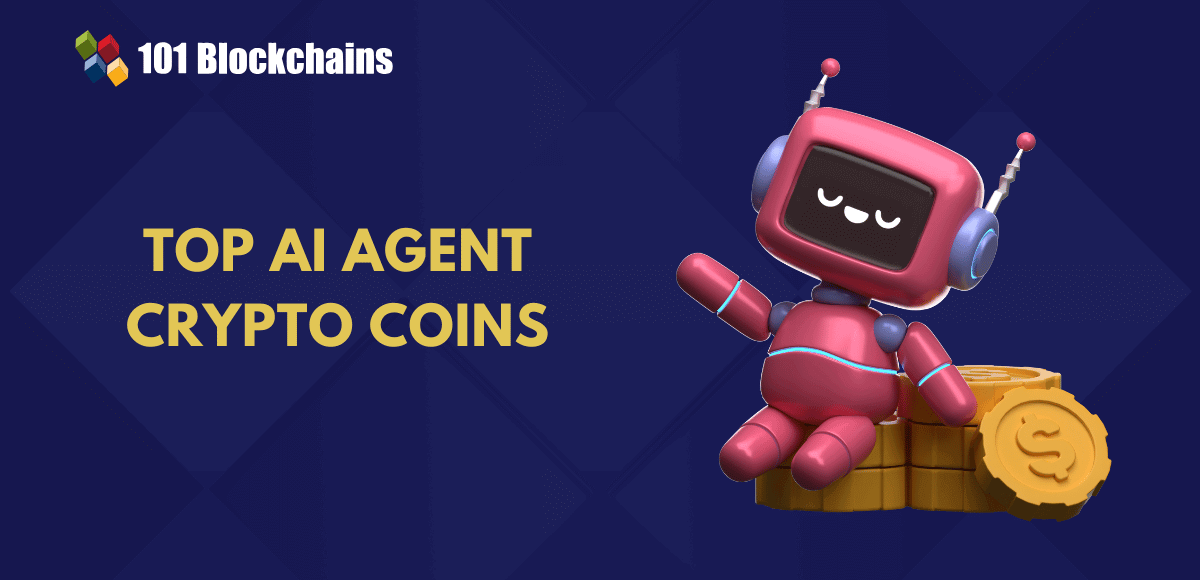Unlock your crypto career potential — become a Certified Cryptocurrency Professional (CCP)™ and master the skills that set you apart in the fast-evolving world of digital assets.

- Cryptocurrency
Georgia Weston
- on December 16, 2021
Frequently Asked Questions about Cryptocurrency
What is cryptocurrency? How does cryptocurrency work? What controls cryptocurrency? Want to know all this? If yes, read on to find the answers to common cryptocurrency FAQs.
The term “cryptocurrency” is not a mystery anymore, and many people have developed basic awareness about cryptocurrencies and their functions. Interestingly, cryptocurrency adoption has been growing profoundly all over the world, with estimated global crypto ownership rates pinned at 3.9%. So, it clearly means that there are more than 300 million crypto users all over the world as of 2021.
Another interesting fact in this context is that more than 18000 businesses are accepting payments in cryptocurrencies. The growing interest in cryptocurrencies has been a major reason for driving beginners to learn about cryptocurrency FAQs. If you want to learn more about cryptocurrencies, then you must have many questions regarding them. Let us find the answers to some of the commonly asked cryptocurrency questions in the following discussion.
Want to become a Cryptocurrency expert? Enroll Now in Cryptocurrency Fundamentals Course
Cryptocurrency Questions for Beginners
People who are learning about cryptocurrency for the first time would reasonably have many doubts. Starting from the definition of cryptocurrencies to their working, there are many cryptocurrency questions for beginners which you should know. Here are some of the frequently asked questions related to cryptocurrency for beginners.
1. What is cryptocurrency?
The first and obvious addition among cryptocurrency FAQs would turn the emphasis towards definition of cryptocurrencies. Cryptocurrency is basically a digital form of currency with the support of cryptographic security for conducting trusted transactions. The underlying technology which runs cryptocurrencies is blockchain, and it offers a ledger for documenting all transactions.
As of now, you can find multiple cryptocurrencies in circulation, such as Bitcoin, Ether, and many new cryptocurrencies. Cryptocurrencies run as decentralized systems or networks without allowing complete control of a specific entity. Another important highlight of cryptocurrencies refers to the method for generating them. For example, miners could use their computing resources and electricity for mining cryptocurrency or stake their assets in a network for earning governance tokens.
Want to become a bitcoin expert? Enroll Now in Getting Started with Bitcoin Technology Course
2. What is blockchain?
You could not find any list of cryptocurrency questions for beginners without the mention of blockchain. The first-ever cryptocurrency, Bitcoin, is the first successful implementation of blockchain in the real world. Blockchain technology is basically a transparent, publicly accessible, trustless, and secure ledger.
It helps in the secure transfer of the ownership of units of value by leveraging proof of work consensus and public-key encryption methods. Blockchain leverages decentralized consensus for maintaining the network, thereby excluding intermediaries such as government, banks, or corporations from the process.
On top of it, the expansion of the blockchain network increases the level of decentralization, thereby strengthening the security of the blockchain. Interestingly, the capabilities of blockchain technology don’t focus on Bitcoin only and also extend to financial services, healthcare, and gaming.
Build your identity as a certified blockchain expert with 101 Blockchains’ Blockchain Certifications designed to provide enhanced career prospects.
3. What are public and private keys?
The next important addition among the best questions about crypto would draw attention to the basic elements in the working of cryptocurrencies. The primary foundation of Bitcoin and other notable cryptocurrencies is public-key cryptography. According to the cryptographic system, two different types of keys, such as public key and private key in pairs, can support crypto transactions. The public keys are important for identification and should be publicly visible. On the other hand, the private keys help in authentication and encryption, thereby implying that they are secret in nature.
4. How do cryptocurrencies work?
The working of cryptocurrencies is also a common highlight in cryptocurrency questions and answers for beginners. Popular cryptocurrencies such as Ethereum and Bitcoin work by using three basic pieces of information. The first important aspect in the working of cryptocurrencies is the address related to a specific account. The second important piece of information is the balance you would use for sending and receiving funds.
Another significant aspect of the working of cryptocurrencies would refer to the public and private keys associated with a specific address. You can generate a private key by generating a Bitcoin address which would also help in identifying the corresponding public key. Subsequently, you can use the address as a representative of the public key for different transactions. On the other hand, the private key offers control over ownership of the funds in a specific address.
Excited to learn the basic and advanced concepts of ethereum technology? Enroll Now in The Complete Ethereum Technology Course
5. What are the reasons for the popularity of cryptocurrencies?
The reasons for the popularity of cryptocurrencies also set the foundation for some frequently asked questions about cryptocurrencies. Interestingly, you can find various reasons for the popularity of cryptocurrencies. One of the most common reasons for the popularity of cryptocurrencies refers to the assumptions suggesting that cryptocurrencies are the currency of the future. In addition, cryptocurrencies also remove banks and other financial intermediaries from focusing on reducing the value of money.
Most important of all, the technology behind cryptocurrencies, i.e., blockchain, is the biggest draw for the future of crypto. Blockchain offers a decentralized system for processing and documenting transactions with better security in comparison to conventional payment systems. On top of it, the rising value of cryptocurrencies also encourages people to turn towards cryptocurrencies in large numbers.
6. Who controls cryptocurrencies?
The commonly asked cryptocurrency questions for beginners would also point towards the implication of control and ownership of cryptocurrencies. Blockchain does not allocate control to a single entity in the case of cryptocurrencies. However, the creators or developers of cryptocurrencies can set specific parameters such as rules for purchasing or selling cryptocurrency.
On the other hand, users get the privilege of controlling or managing the day-to-day operations of cryptocurrencies in a distributed manner. In addition, the identity of owners is anonymous, and you could not find any solid regulatory framework for verifying ownership of cryptocurrencies.
However, some countries are investing efforts in introducing some regulations in this area for countering illegal activities. The legal framework for cryptocurrencies could help governments in fighting off the concerns of terrorism financing and money laundering with cryptocurrencies. Furthermore, regulations could also strengthen the control of governments over monetary policies with respect to cryptocurrencies.
7. Is it reasonable to invest in cryptocurrencies?
Investment in cryptocurrencies is also one of the notable highlights in cryptocurrency FAQs, especially for beginners. If you want to find out whether cryptocurrencies are a good investment, then you should definitely know that they are volatile. Cryptocurrencies do not generate any cash flow like real currencies and are not stable. A currency should have stability which could help merchants and consumers in deciding the fair price for goods.
Bitcoin and many other popular cryptocurrencies have barely shown any sign of stability since their inception. For example, after rising to almost $20,000 in 2017, the value of Bitcoin dropped to almost $3200 in 2018. Now in 2021, Bitcoin has been successful in attaining record high levels. With price volatility as the main concern, it is quick to arrive at a conclusion about investments in cryptocurrency.
8. How can I buy cryptocurrencies?
Another common entry among common cryptocurrency questions and answers would point out methods for buying cryptocurrencies. Beginners who want to learn about cryptocurrencies are also likely to express interest in owning and trading cryptocurrency. Interestingly, you could purchase some cryptocurrencies such as Bitcoin directly with fiat currency like US dollars. On the other hand, you might also find some cryptocurrencies which you have to purchase with Bitcoins or other cryptocurrencies.
You can buy cryptocurrencies through a wallet, which is basically an online app for holding your crypto assets. Users generally have to create an account for a specific exchange and transfer actual money for purchasing cryptocurrencies such as Ethereum or Bitcoin. One of the popular examples of platforms to buy and sell cryptocurrency is Coinbase. The renowned cryptocurrency trading exchange helps you create a wallet and conduct cryptocurrency transactions easily.
Want to get an in-depth understanding of crypto fundamentals, trading and investing strategies? Join the Standard & Premium Plans and get free access to Crypto Fundamentals, Trading And Investing Course.
9. What are cryptocurrency wallets?
The interest in purchasing cryptocurrencies would subsequently lead you to cryptocurrency FAQs related to crypto wallets. Crypto wallets are basically platforms for the secure storage of digital assets in comparison to exchanges. Users could hold a wallet through an exchange account or a custody wallet and even from outside the exchange. As a matter of fact, cryptocurrency wallets help in storing the private keys to your cryptocurrency on the blockchain.
You can find two distinct variants of crypto wallets such as hot wallets and cold wallets. Users can access the hot wallets with connectivity to the internet through their desktops, mobile phones, or tablets. On the other hand, cold wallets store private keys to the cryptocurrency of users in offline storage, thereby ensuring better security. However, you have to focus on the security of the cold wallet itself, which might be in the form of a USB device or paper.
10. How can I start investing in cryptocurrencies?
You could also have some of the best questions about crypto dealing directly with investment in cryptocurrencies. Beginners have doubts regarding the best practices for investing in cryptocurrencies and need the best practices for doing the same. You can take the example of Bitcoin and start investing by joining a Bitcoin exchange and obtaining a wallet.
After obtaining the Bitcoin wallet, you need to connect it to a bank account, and then you can place your Bitcoin order. Once you have Bitcoin in your account, you can invest it in liquidity pools, yield farming, or staking for earning passive income. On the other hand, some crypto owners could also choose to hold their crypto and wait for their prices to rise before trading. The key to successful investments in cryptocurrencies largely revolves around the successful management of your Bitcoin investments.
Curious to know the impact and in-depth understanding of crypto compliance in businesses? Enroll now in the Crypto Compliance Fundamentals Course.
Advanced Cryptocurrency Questions and Answers
While the basic cryptocurrency FAQs are essential for beginners, you need to dive deeper into cryptocurrency concepts. The advanced FAQs on cryptocurrencies could help you find insights on many other aspects related to crypto. Here are some of the top cryptocurrency questions and answers which deal with advanced concepts in crypto.
11. What is ICO?
ICO is one of the important concepts you would come across in best questions about crypto. ICO or Initial Coin Offerings are basically a fundraising method used generally by startups and developers who want to launch new cryptocurrency tokens. Developers can collect money in crypto or fiat currency in return for the newly developed cryptocurrency. Buyers rely solely on the assumption that the new crypto token would be used on a large scale, thereby increasing its price. However, an ICO is different from IPOs, or Initial Public Offerings as investments in ICO do not guarantee an ownership stake in the company.
Start learning about Cryptocurrencies with World’s first Cryptocurrency Skill Path with quality resources tailored by industry experts Now!
12. What is the master seed for crypto wallets?
The common framework for developing crypto wallets refers to the HD or hierarchical deterministic framework. It is the standard framework that facilitates the creation and management of Bitcoin addresses. The Extended Public Key of the wallet helps in generating public addresses for a wallet. Upon receiving an incoming payment on the public address, you would find a new address generated automatically.
When you click on the receive action, you can find a display of the amount you have received. It is also important to remember in cryptocurrency FAQs that any individual could track the payment history when a user depends on the same address for receiving funds. However, the HD framework of generating addresses can improve privacy as you get a new address every time you expect payment.
13. What are transaction fees in cryptocurrency?
The topic of transaction fees is also a common highlight in cryptocurrency questions and answers due to their significance. Each cryptocurrency transaction should be added to the blockchain to ensure a successful and valid transfer. In order to add a transaction to a blockchain, you would need computational resources.
Miners provide the required resources with their powerful computers featuring specialized hardware. The powerful computers of the miners serve as a vital portion of the network while also supporting the process of confirming transactions on the network. A cryptocurrency network gains many special, decentralized traits due to the work of miners in validating and confirming transactions.
The miners receive financial rewards for investing massive volumes of computing resources and energy in supporting the network. Miners receive a block reward for adding a transaction to the blockchain alongside the transaction fees for verifying the transactions.
Learn the fundamentals, working principle and the future prospects of cryptocurrencies from the E-book: AN INTRODUCTION TO CRYPTOCURRENCY FUNDAMENTALS
14. What is the role of transaction fees in cryptocurrency?
While this question might relate directly to the previous question, you need to understand the importance of transaction fees in determining whether to accept a transaction or not. The fees included with transactions go to miners, who take responsibility for verifying and confirming transactions.
With the help of higher fees, you have better chances of improving your transaction priority. However, low transaction fees would reduce the precedence of your transactions. Many people are worried about the concerns with low transaction fees in different cryptocurrency FAQs for obvious reasons.
Low transaction fees might imply scenarios where miners do not consider a transaction worthwhile for validation. As a result, extremely low transaction fees can lead to rejected transactions. Furthermore, the design of cryptocurrency networks prevents users from objecting to the rejection of pending transactions.
15. What is Bitcoin?
Beginners who are interested in learning about cryptocurrency are more likely to ask about Bitcoin in frequently asked questions about cryptocurrency. The answer to the question would point you towards two different identities of Bitcoin. One identity of Bitcoin is the network that helps in maintaining track of all transactions and balances of users.
The second identity of Bitcoin refers to the currency which you can use as a unit of value for transactions. The Bitcoin network or Bitcoin blockchain helps in facilitating transactions among users. With the help of distributed consensus, the network supports the verification and confirmation of transactions.
At the same time, the network achieves consensus through a massive global network of miners with high-performance computing resources. On the other hand, Bitcoin as the currency is basically the unit of value you can send and receive on the Bitcoin blockchain.
Get familiar with the terms related to cryptocurrency with Cryptocurrency Flashcards
16. What can you find in a Bitcoin transaction?
One of the best questions about crypto would bring the limelight on how a Bitcoin transaction works. It is important to note that transactions serve as the backbone of the Bitcoin network and all Bitcoin transactions follow important precedents. Bitcoin transactions involve peer-to-peer exchanges between users without any intermediaries alongside the addition of new blocks to the blockchain. At the same time, Bitcoin transactions also involve miners, who are responsible for security of the network.
Miners are also responsible for the generation of new Bitcoin. The transactions on Bitcoin network feature cryptographically-signed inputs alongside outputs and network nodes for validating and confirming the transactions. In addition, Bitcoin transactions also emphasize certain prerequisites. The sending and receiving parties should have public keys alongside addresses on the internet. Furthermore, the sending party should have a private key for unlocking Bitcoin from a public address.
17. What is UTXO?
Speaking of Bitcoin transactions, you would come across another notable topic in frequently asked questions about cryptocurrency with UTXO. UTXO basically means unspent transaction output, which points to the amount of digital currency you have remaining after completing a cryptocurrency transaction. Every Bitcoin transaction starts with the use of some coins for balancing the ledger. It is important to note that UTXOs are subject to continuous processing.
In addition, UTXO also plays a crucial role in facilitating the beginning and completion of transactions on cryptocurrency networks. Upon confirmation of transaction results, the crypto network removes the spent coins from the UTXO database. However, you can still find details of the spent coins on the ledger. In simple words, one could think of UTXO is the change you would receive after conducting a cash transaction.
Want to quickly understand bitcoin and how does it works? Check the presentation Now for quick overview What Is Bitcoin and How Does It Work
18. What are the steps in a basic Bitcoin transaction?
The steps of a basic Bitcoin transaction also qualify as an important entry among cryptocurrency FAQs for obvious reasons. Now, let us assume a situation where Sally wants to send 1 Bitcoin to Ronald. Sally would start the transaction b creating a UTXO as a guaranteed form of payment.
In the second step, Sally has to sign the transaction with her private key, followed by broadcasting the transaction to the Bitcoin blockchain. Sally must attach transaction fees with the transaction, and miners would check the fees for assigning transaction priority.
Miners on the Bitcoin network start verifying the transaction to confirm whether Sally has the one Bitcoin she intends to pay. Miners verify the UTXO of Sally and other UTXOs before packaging all UTXOs in a group, followed by broadcasting the block to other nodes. Upon verification by other nodes, miners pass the block for inclusion in the blockchain.
19. What is Bitcoin Cash?
The best questions about crypto would also draw your attention toward Bitcoin Cash or BCH. Bitcoin Cash is basically a cryptocurrency developed as an outcome of the hard fork in the Bitcoin blockchain. The origins of Bitcoin Cash came from Bitcoin in August 2017 through a hard fork at block 478558. Bitcoin owners at the time of the fork received ownership of the same amount of Bitcoin cash in crypto.
Users could access the equivalent amount of Bitcoin Cash into their wallets if they had Bitcoin in their wallets at the time of the form. The interesting thing about Bitcoin Cash is the fact that it is a completely supported, independent currency in your wallet. You can easily send, receive and store Bitcoin Cash securely alongside exchanging it for other cryptocurrencies.
Curious to learn about blockchain implementation and strategies? Enroll Now in Blockchain Technology – Implementation And Strategy Course!
20. How is Bitcoin Cash different from Bitcoin?
The list of commonly asked cryptocurrency questions and answers would also refer to differences between Bitcoin Cash and Bitcoin. First of all, you should know that Bitcoin Cash evolved as a hard fork from the Bitcoin network. Bitcoin cash implemented a new improvement with an increased block size at 8MB.
The primary objective of Bitcoin Cash for increasing block size focuses on ensuring faster transactions alongside including more transactions in every block. Most important of all, you should know that Bitcoin and Bitcoin Cash are two completely different cryptocurrencies. You cannot send Bitcoin Cash to Bitcoin addresses and vice versa.
21. What is a stablecoin?
Your search for the top cryptocurrency FAQs would also bring you to the topic of stablecoins. They are basically digital currency pegged against a stable reserve asset such as gold or fiat currency like the US dollar. The primary objective of stablecoins focuses on reducing the volatility of cryptocurrencies in comparison to unpegged crypto such as Bitcoin.
As a matter of fact, stablecoins serve as a bridge between the worlds of fiat currency and cryptocurrency. The adoption of stablecoins depends largely on the distinct traits they offer apart from stability of investments. With the value of global accessibility, stablecoins also provide the benefits of speed, cost-effectiveness, and security.
Want to learn the basic and advanced concepts of stablecoins? Enroll Now: Stablecoin Fundamentals Masterclass
22. What is Tether?
Tether is a popular example of stablecoin, and you could find beginners seeking its definition in frequently asked questions about cryptocurrency. Tether or USDT is a renowned stablecoin with its value pegged against the US dollar. By fixing a value at par with a popular fiat currency, Tether provides trustworthy protection from volatility in the crypto space. Interestingly, you should note that the original USDT implementation used the Bitcoin blockchain as a foundation. However, there have been many other implementations of USDT on the Ethereum blockchain.
23. What are ERC20 tokens?
ERC20 tokens are also another common highlight you would find in commonly asked cryptocurrency questions and answers. The ERC20 token is basically a blockchain-based asset, which features the same functionality as Bitcoin, Bitcoin Cash, and Ether. However, ERC20 tokens are different from other cryptocurrencies is the fact that ERC20 tokens must be generated and managed on the Ethereum blockchain. In addition, ERC20 tokens also feature highlights like they can be stored and sent by leveraging Ethereum transactions and addresses.
Want to learn the basic and advanced concepts of Ethereum? Enroll in our Ethereum Development Fundamentals Course right away!
24. Is Ethereum same as Bitcoin?
From the first glimpse, one would reasonably assume that Ethereum is the same as Bitcoin. Although Ethereum is another distributed public blockchain network like Bitcoin, it moves beyond the focus on cryptocurrencies only. Ethereum places priority on execution of programming code in decentralized applications.
You can think of it simply as a platform to share information throughout the world. In the case of Bitcoin, you could find only one application of blockchain technology. However, Ethereum allows users to leverage blockchain as the foundation of a massive global computational network.
25. What are the best practices for investing in cryptocurrency?
The list of commonly asked cryptocurrency FAQs would also reflect on the apprehensions of beginners regarding investments in cryptocurrency. However, a selected set of best practices could help you in avoiding any unwanted circumstances. For example, you need to check the credibility of the developer or founding team behind a cryptocurrency before investing in it.
You could also check for any other major investors participating in the project. Beginners should also check whether they would own a stake in the project or just cryptocurrency and tokens. In addition, the stage in which the project is in also plays a crucial role in verifying whether it is a good choice for investment.
Start learning Blockchain with World’s first Blockchain Skill Paths with quality resources tailored by industry experts Now!
Bottom Line
The different cryptocurrency questions and answers highlighted here could solve many common doubts of people about cryptocurrencies. With massive value locked in the crypto landscape, it is reasonable to find increased interest in learning about cryptocurrencies. However, the common doubts about cryptocurrencies can hamper the learning experience of beginners. In addition, even experienced crypto enthusiasts might experience some doubts about using cryptocurrencies. Therefore, the FAQs can serve as a vital reference for everyone interested in cryptocurrencies. Learn more about the crypto space and explore new opportunities right now with us!
Learn non-stop with 101 Blockchains free blockchain resources and take your blockchain expertise to the next level.
*Disclaimer: The article should not be taken as, and is not intended to provide any investment advice. Claims made in this article do not constitute investment advice and should not be taken as such. 101 Blockchains shall not be responsible for any loss sustained by any person who relies on this article. Do your own research!






